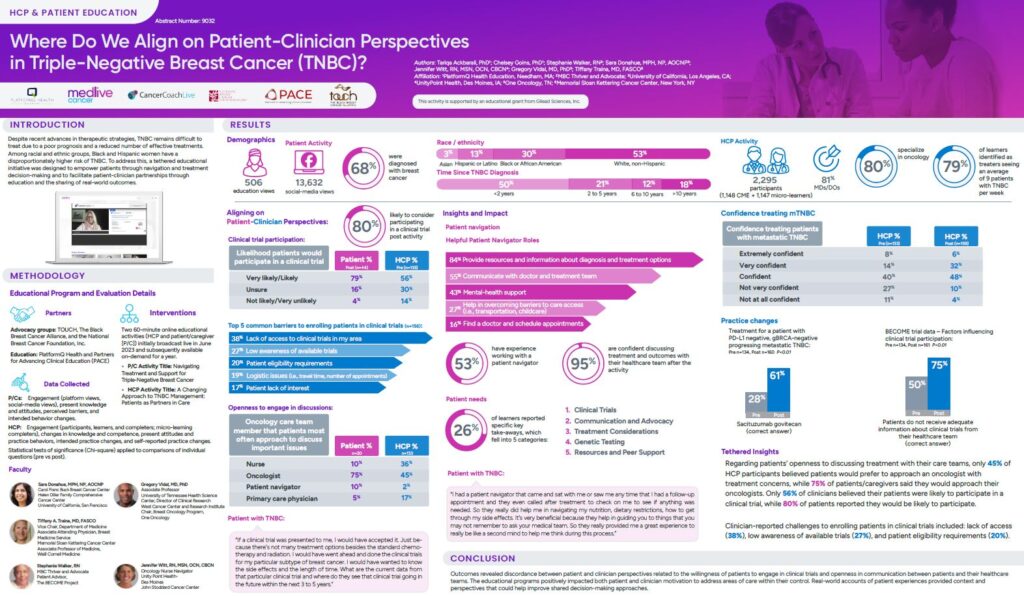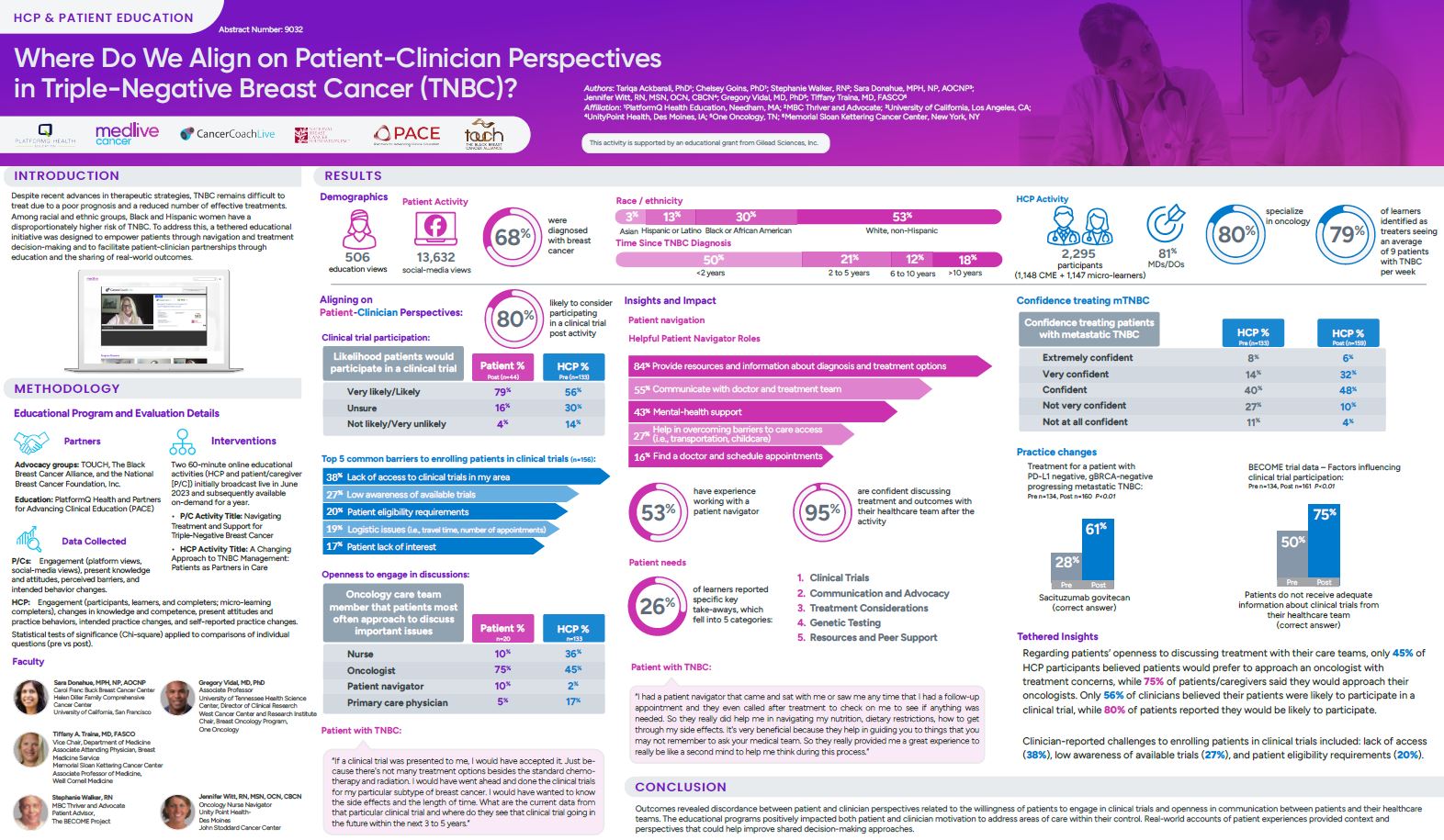Triple-negative breast cancer (TNBC) remains difficult to treat, and disproportionately affects women of color. To address these challenges, PlatformQ Health joined together with TOUCH: The Black Breast Cancer Alliance and the National Breast Cancer Foundation to develop a tethered educational program to empower patients in treatment decision making and to help facilitate better patient-clinical communication through sharing of real-world outcomes.
This included two 60-minute digital education sessions presented live and made available on demand for one year afterwards. The sessions, entitled “Navigating Treatment and Support for Triple-Negative Breast Cancer” and “A Changing Approach to TNBC Management” were led by specialists from the Helen Diller Family Comprehensive Cancer Center at the University of California at San Francisco, the University of Tennessee Health Science Center, Memorial Sloan Kettering Cancer Center, John Stoddard Cancer Center, as well as a patient advisor from the BECOME Project.
The outcomes of the patient/provider education were presented during the 2024 ASCO (American Society of Clinical Oncology) annual meeting.
For the patient session, there were 506 education views among patients/caregivers as well as 13,632 social media views. 68% of those learners identified as being diagnosed with breast cancer. 30% of participants were Black or African American, 13% were Hispanic or Latino, 3% were Asian, and 53% were white, non-Hispanic.
The sessions revealed several common barriers to clinical trial participation, such as:
- Lack of access to trials in the area
- Low awareness of available trials
- Patient eligibility requirements
- Logistical issues such as travel time
- Lack of interest
After the session, 80% of learners stated they were likely to consider participating in a clinical trial. Patients also shared what resources would be most helpful, such as:
- Providing resources and information about diagnosis and treatment options
- Communication with doctor and treatment team
- Mental health support
- Help overcoming barriers such as transportation and childcare issues
For the provider session, there were 2,295 participants, including 81% who were MDs or DOs, and 80% who specialize in oncology. 79% reported that they treat an average of nine patients with TNBC a week.
Prior to the session, 40% said they were confident and 14% said they were very confident treating patients with metastatic TNBC. After the session, 48% reported being confident and 32% reported being very confident. The session also improved providers’ competency in areas such as treatment of patients with PD-L1 negative, gBCRA-negative progression metastatic TNBC as well as understanding factors influencing participation in the BECOME trial.
Overall, the tethered program revealed many insights and areas in need of improvement in dialogue. For example, only 45% of providers believed their patients were likely to participate in a trial while 80% of patients said they were likely to participate. Sharing these knowledge gaps and real-world patient experiences helps patients and providers better understand ways to communicate. and improve shared decision-making.


